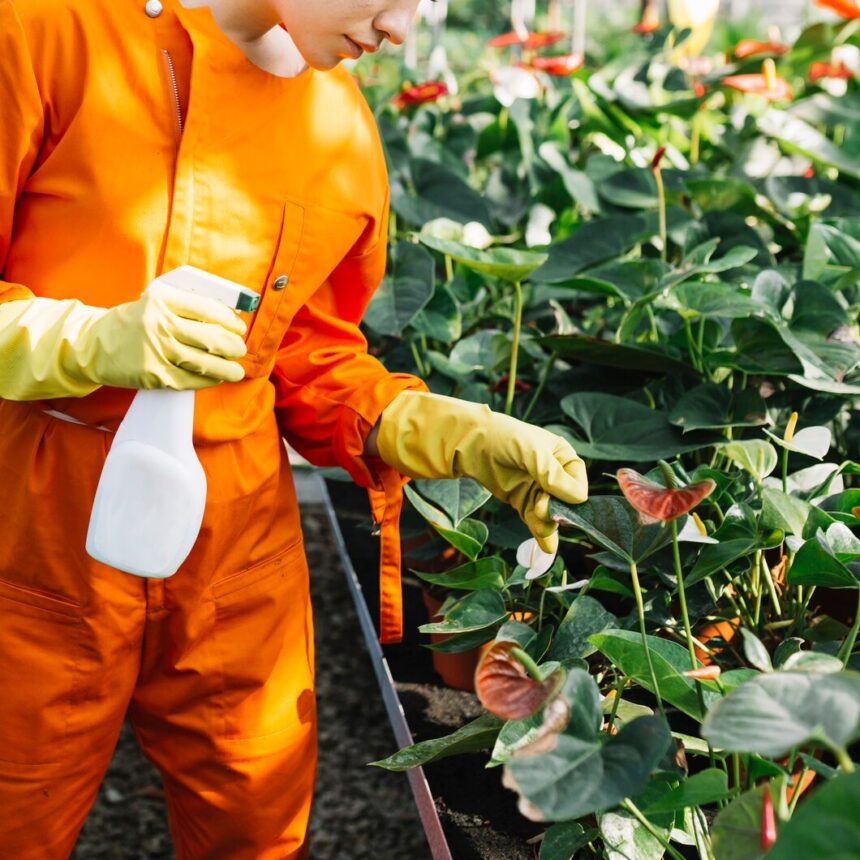Integrated Pest Management (IPM) is a holistic approach that emphasizes sustainable and environmentally friendly pest control strategies while minimizing reliance on chemical pesticides. For South African farmers, adopting IPM techniques can help maintain crop health, preserve beneficial insects, and reduce environmental impact. Here are ten effective techniques for implementing IPM on farms:
- Crop Rotation: Rotate crops regularly to disrupt pest life cycles and reduce pest buildup in the soil. Different crops can also alter the soil environment, making it less favorable for pests.
- Biological Control: Introduce natural predators, parasites, or pathogens that target specific pests. Examples include releasing ladybugs for aphid control or using beneficial nematodes to manage soil-dwelling pests.
- Use of Trap Crops: Plant trap crops near main crops to attract pests away from valuable plants. These sacrificial plants can help divert pests and minimize damage to cash crops.
- Cultural Practices: Adopt cultural practices such as proper irrigation management, timely planting, and optimal spacing between plants. Healthy plants are less susceptible to pest infestations.
- Mechanical and Physical Controls: Implement physical barriers like row covers or netting to exclude pests from crops. Handpicking pests or using vacuum devices for larger pests can also be effective.
- Monitoring and Early Detection: Regularly scout fields to monitor pest populations and identify potential problems early. Early detection allows for timely intervention before pests cause significant damage.
- Use of Resistant Varieties: Select and plant crop varieties that are naturally resistant or tolerant to prevalent pests in your region. Resistant plants can withstand pest attacks better and require fewer pesticides.
- Crop Sanitation: Remove and destroy crop residues and weeds that harbor pests and diseases. Proper sanitation reduces pest reservoirs and disrupts their life cycles.
- Pheromone Traps and Mating Disruption: Deploy pheromone traps to monitor pest populations and disrupt mating patterns. This technique can help reduce pest numbers without chemical intervention.
- Educational and Farmer Training Programs: Participate in educational programs and training workshops on IPM practices. Sharing knowledge and experiences among farmers promotes effective pest management strategies and enhances overall farm sustainability.
Benefits of IPM
Implementing IPM techniques offers several benefits to South African farmers:
- Reduced Pesticide Use: Minimizes reliance on chemical pesticides, reducing potential health risks to farmers, consumers, and the environment.
- Preservation of Beneficial Insects: Protects natural enemies of pests, such as pollinators and predators, which contribute to ecosystem balance.
- Cost Savings: Reduces input costs associated with pesticide applications and promotes long-term sustainability of farming operations.
- Improved Crop Quality: Enhances crop health and yield potential by managing pest pressures effectively and promoting overall plant vigor.
By integrating these IPM techniques into farming practices, South African farmers can achieve sustainable pest management, maintain farm productivity, and contribute to a healthier agricultural ecosystem for future generations.
Join 'Farmers Mag' WhatsApp Channel
Get the latest Farming news and tips delivered straight to your WhatsApp
CLICK HERE TO JOIN






